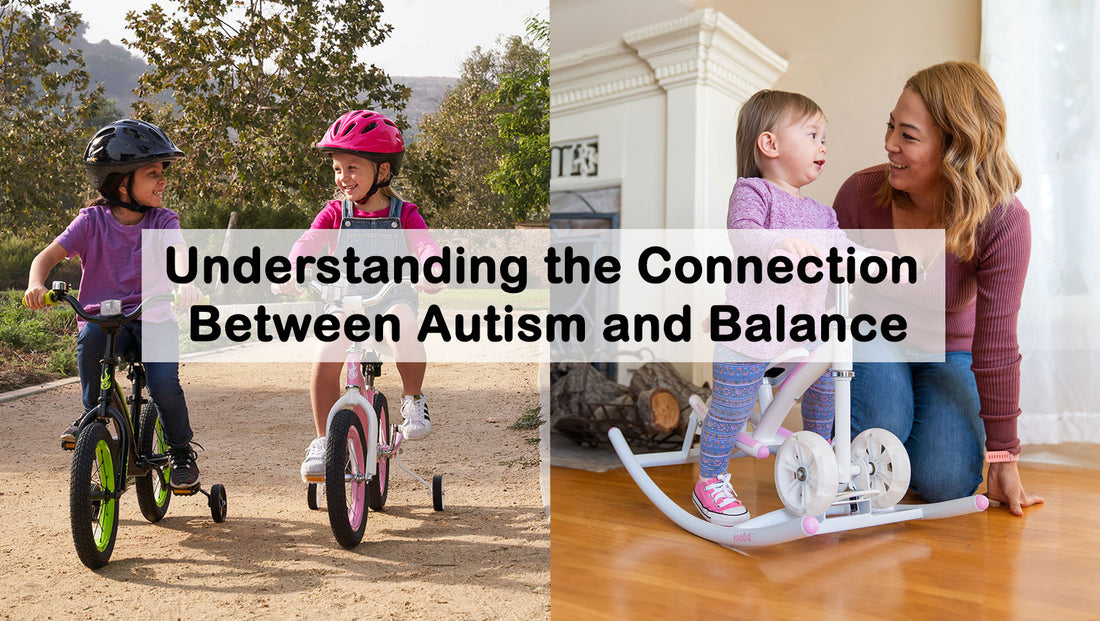We here at Mobo Cruiser understand that balance is a fundamental aspect of our daily lives, often taken for granted until it becomes disrupted. While balance issues are commonly associated with physical conditions or aging, they can also be linked to neurodevelopmental disorders such as autism spectrum disorder (ASD). Autism affects individuals in various ways, with each person presenting a unique combination of strengths and challenges. One lesser-known challenge that some individuals with autism face is difficulties with balance.
Research has shown that individuals with autism may experience challenges with balance for several reasons:
- Sensory Processing Differences: Many individuals with autism have sensory processing differences, meaning they may experience sensations differently than neurotypical individuals. This can include hyposensitivity to stimuli such as touch, sound, and movement. These sensory differences can affect how individuals process information from their environment, including proprioceptive and vestibular input, which are crucial for maintaining balance.
- Motor Coordination Issues: Motor coordination difficulties are common among individuals with autism. These challenges can impact their ability to coordinate movements and adjust their posture, leading to difficulties with balance. Tasks that require precise coordination, such as walking in a straight line or standing on one foot, may be particularly challenging for some individuals with autism.
- Executive Functioning Deficits: Executive functioning refers to a set of cognitive processes responsible for planning, organizing, and executing tasks. Some individuals with autism may have deficits in executive functioning, which can affect their ability to anticipate and respond to changes in their environment. This can contribute to difficulties with balance, as individuals may struggle to adjust their movements in response to shifting sensory cues or unexpected obstacles.
- Co-occurring Conditions: Many individuals with autism have co-occurring conditions that can impact balance. For example, motor coordination difficulties are commonly associated with conditions such as dyspraxia and hypotonia, which are more prevalent among individuals with autism. Additionally, medications used to manage symptoms of autism or co-occurring conditions may have side effects that affect balance.
Support and Strategies: While balance difficulties can pose challenges for individuals with autism, there are various strategies and supports that can help address these issues:
- Sensory Integration Therapy: Sensory integration therapy aims to help individuals with autism process and respond to sensory input more effectively. This can include activities that provide proprioceptive and vestibular input, such as cycling, swinging, bouncing on a therapy ball, or engaging in activities that promote body awareness and coordination.
- Occupational Therapy: Occupational therapists can work with individuals with autism to develop strategies for improving balance and coordination. This may involve exercises to strengthen core muscles, improve posture, and enhance motor planning skills.
- Adaptive Equipment: Adaptive equipment such as Mobo Adaptive Tricycles, balance boards, stability balls, and weighted vests can provide additional support for individuals with autism during activities that require balance and coordination.
- Environmental Modifications: Making simple modifications to the environment, such as reducing clutter, providing visual cues, and creating a predictable routine, can help individuals with autism feel more comfortable and confident navigating their surroundings.
By understanding the connection between autism and balance, we can better support individuals with autism in overcoming these challenges and improving their overall quality of life. We here at Mobo Cruiser do our best to accommodate all of our customers, and through tailored interventions and accommodations, we help individuals with autism build the skills and confidence needed to navigate the world with greater ease and independence.

